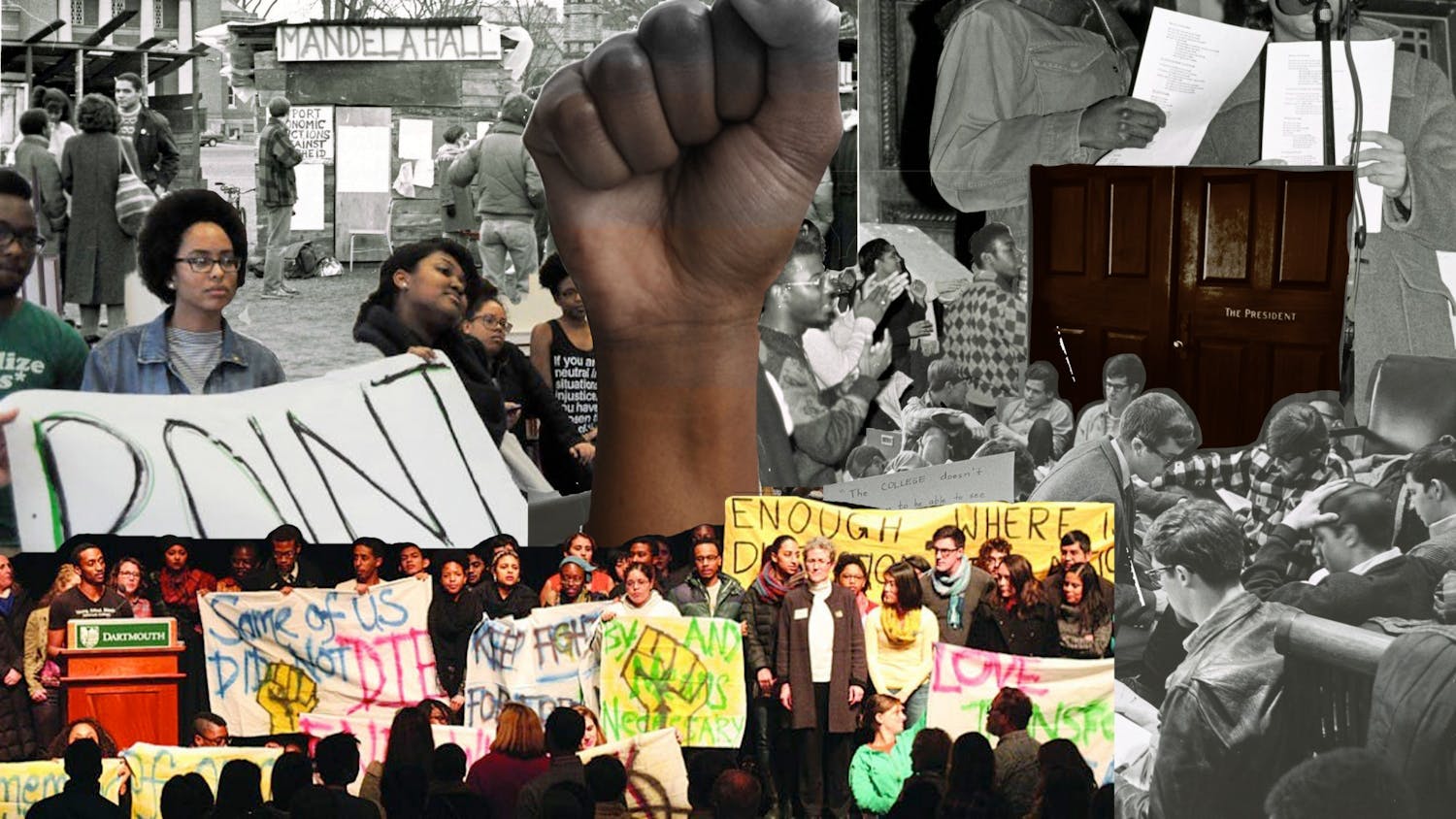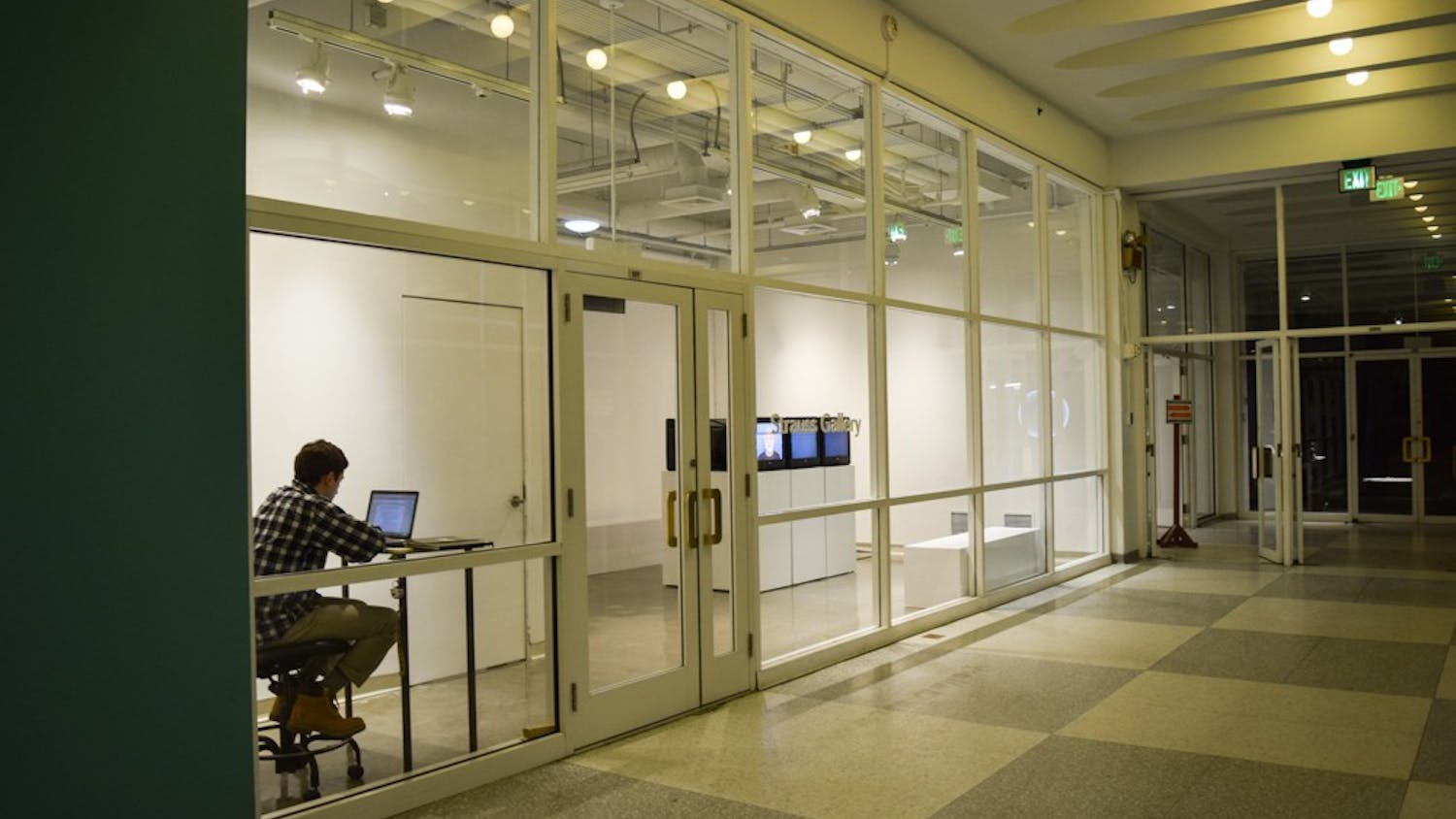Dartmouth students have great affection for our libraries — take our interactions with the Dartmouth Library Instagram account. When I was a freshman, my First-Year Trip leaders showed me which parts of Baker-Berry were social and which were designated for intense studying. Although different spaces within the library function in different ways, the library as a whole feels like home to many students. This time last year, I remember stacking my belongings — essay drafts, extra pens, flaming hot cheetos and caffeinated yellow vitamin water — in the shelves of the periodicals, preparing to practically live there until finals were over.
Molly Knox ’23 is currently living with four friends from Dartmouth in Kiawah Island, South Carolina. When Knox studies, she feels most productive when she surrounds herself with other people. At Dartmouth, her favorite social study space is the 1902 Room, where she can usually see friends as they walk between classes.
“I really value seeing others throughout my day, so I don’t like working in a really private space,” Knox said. “I like being interrupted and having impromptu breaks when my friends feel like emoting post-class. I’m able to concentrate and focus with noise canceling headphones — I can get work done but also see there’s human life.”
Before relocating to South Carolina, Knox spent the spring term at home with her three older siblings. In addition to her sudden detachment from Dartmouth, Knox says she felt frustrated by the difference between her study habits and her siblings’ work schedules.
“It was hard being a student around people working nine-to-five jobs because the life of a student is 24/7, and I have a really strange sleep schedule with school work,” Knox said. “Coming down for dinner with my siblings who were all done with work for the day was really hard because I had to go back to finish the next chapter of reading afterward.”
This term, Knox has found it helpful to live with other students who share a similar schedule. Abby Brazil ’21, meanwhile, is spending the term in the real world. She is living in Boston, participating in a mechanical engineering internship with Vayu Global Health. Though she is not taking classes, Brazil said that she wishes she had access to the library so that she could conduct research for a potential engineering thesis.
Brazil’s internship is in person, so she accomplishes most of her work at the office. When working independently on her thesis or other projects, she works on her bed.
“Working on your bed is never super healthy, but it suffices,” Brazil said.
More than a dedicated study space, though, Brazil says she misses the human interaction that she usually enjoys at the library.
“When you're working in the library, there's a sense of urgency for your work,” Brazil said. “I miss grinding together and that sense of community. Meeting with group projects in the library, or even when you recognize someone in your class and you ask how they're doing … that's how you form bonds with other Dartmouth students, and that’s what I’ve been really missing this fall.”
Responding to feedback from students who miss the social aspects of the library, Dartmouth Information, Technology and Consulting, along with DALI Lab and the Thayer School of Engineering, created a virtual First Floor Berry study room, available through DartHub. Students can tell their friends to meet at one of several tables, which are arranged to resemble the real FFB. When you click on a “seat,” a Zoom room opens for you and your friends to study together.
The creation of a virtual FFB indicates just how much students value communal study spaces. J.J. Jones ’21 said that although he lives on campus this term and has access to the physical library, he finds it isolating without the usual crowds.
“I definitely do miss just walking through the library, seeing people I know on FFB and being able to stop and have a conversation with them. Even if I'm not going to study in that exact spot, it was nice to have that human interaction,” Jones said.
Jones usually studies in quiet spaces, such as the stacks or Third Floor Berry. When trying to recreate an optimal study space in his room in Gamma Delta Chi, Jones found that he missed the separation of space the library offered.
“It’s definitely really lonely being in your room all day and working. It would be nice to go to the library and have my chill space be separate from my study space,” Jones said.
Due to the brevity of library reservations — students are limited to three, three-hour time slots per day — Jones is studying more in his room than in the library. Like Jones, Livy Scott ’21 struggles with completing her work in her bedroom rather than in a space designated for intense concentration. Scott is currently writing a history thesis, and she has carved out office space in her off-campus house near the College.
Since she is not formally on campus, though, Scott does not have access to the library. She said that this has been a significant impediment to her work. Though history subject librarian Wendel Cox urged thesis writers to rely on online sources, Scott’s thesis uses books from the 19th century and primary sources from the 17th century, most of which do not exist in a virtual format.
“It was pivotal for me to get access to the library,” Scott said. “They advised me to designate a proxy. I asked a friend to be my proxy, but this has been really difficult for her since I am checking out 20 to 30 books from the library a week … If I needed a book, normally I would just walk into the stacks. Now I have to wait, and it has changed the trajectory of my writing.”
Every time Scott needs to use another book, she and her proxy have to go through the tedious logistics of transporting them. After she gets the books, though, she has to find space for them in her off-campus house.
“I have hundreds of books in my off-campus room. I actually have had to buy a bookshelf. It's been really frustrating to keep them all with me,” Scott said.
Looking ahead, Scott wonders how she will interact with the library once she gets on-campus privileges in the winter. A long-term project necessitates long-term study sessions, and she worries about transporting her books back and forth every few hours.
With limited access to the library, Dartmouth students both on and off campus are beginning to prepare for a prolonged finals period. Whether providing social interaction or facilitating a separation between work and life, good study spaces are integral parts of the student experience. When Dartmouth’s libraries fully reopen, we’re all looking forward to inhabiting our favorite study spots again.





